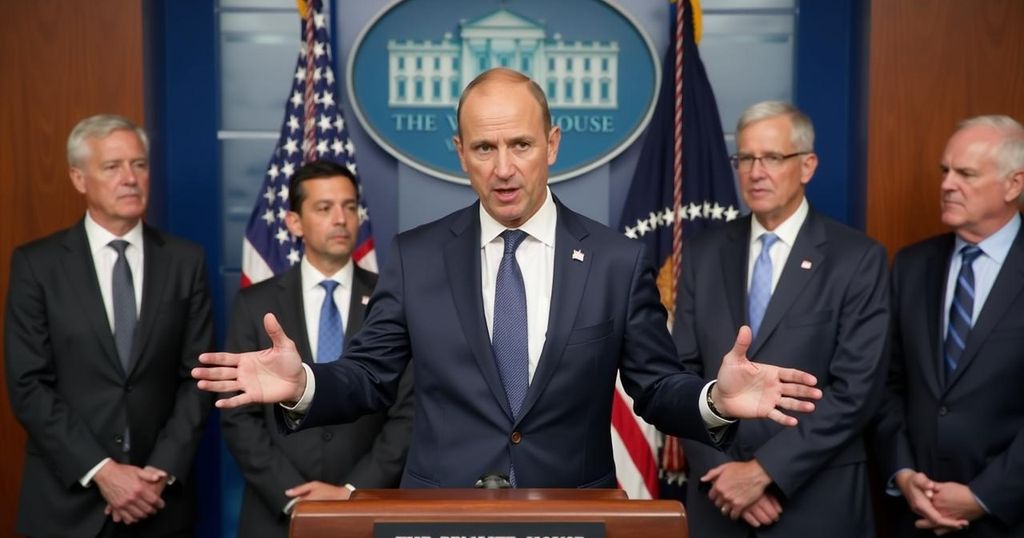U.S. Officials Confirm Israeli Assurances on Iran Amid Ongoing Middle East Tensions

U.S. officials claim assurances from Israel regarding refraining from attacking Iranian nuclear and oil sites amid heightened tensions after Iran’s missile attacks. A U.S. THAAD battery has been deployed to enhance Israel’s air defenses. The Biden administration has underscored the urgency of increasing humanitarian aid to Gaza, warning of potential repercussions on military funding for Israel.
On Tuesday, U.S. officials indicated that the Biden administration has received assurances from Israel regarding its military actions in relation to Iran, specifically concerning Iranian nuclear and oil facilities. Following Iran’s missile attacks earlier this month, which included approximately 180 ballistic missiles launched on October 1, the U.S. has bolstered Israel’s air defense system by deploying a Terminal High Altitude Area Defense (THAAD) battery alongside approximately 100 personnel to operate it. This move, authorized by President Joe Biden, aims to alleviate Israeli concerns regarding potential Iranian retaliation. However, U.S. officials cautioned that Israel’s commitments are not guaranteed, referencing the country’s historically inconsistent adherence to agreements influenced by domestic political situations. For instance, a recent promise from Prime Minister Benjamin Netanyahu regarding a ceasefire initiative in Lebanon was swiftly overshadowed by a substantial Israeli airstrike targeting Hezbollah’s leadership. Furthermore, Defense Secretary Lloyd Austin and Secretary of State Antony Blinken expressed to their Israeli colleagues through a letter that humanitarian aid into Gaza must significantly increase within the next month, warning that failure to do so might jeopardize Israel’s access to U.S. military funding. The ongoing conflict between Israel and Iranian-backed groups, particularly Hamas and Hezbollah, has intensified, leading to concern over an escalation into broader regional conflict. President Biden has communicated his disapproval of retaliatory strikes against Iranian nuclear sites, emphasizing the need for Israel to seek alternative responses that do not disrupt the global oil market, particularly in light of the upcoming U.S. presidential election. Recent communications between U.S. and Israeli leadership highlight the urgent need for a diplomatic resolution to the escalating humanitarian crisis in Gaza, alongside military considerations.
The situation surrounding the U.S. and Israel’s geopolitical relationship has become increasingly complex due to Iran’s military provocations and regional dynamics involving multiple actors including Hamas and Hezbollah. The Biden administration’s measures, including military assistance and diplomatic communications, underscore the critical interplay between defense strategy and humanitarian obligations in the context of ongoing violence and the broader Middle East security landscape. Israel’s past actions and responses to U.S. diplomatic efforts further complicate expectations in such collaborations. These recent developments illustrate the balancing act that the Biden administration must navigate in maintaining strong ties with Israel while addressing pressing humanitarian concerns in Gaza, amidst fears of a potential escalation into a larger conflict.
In summary, the Biden administration’s strategy in the Middle East seeks to assure Israel of U.S. support while urging caution regarding military actions against Iran and emphasizing the necessity of increasing humanitarian aid to Gaza. The delicate nature of U.S.-Israeli relations is evident, as past experiences highlight challenges in Israeli compliance with diplomatic commitments. The ongoing tensions present a formidable test for U.S. foreign policy, balancing military assurance with humanitarian responsibilities.
Original Source: www.pbs.org








